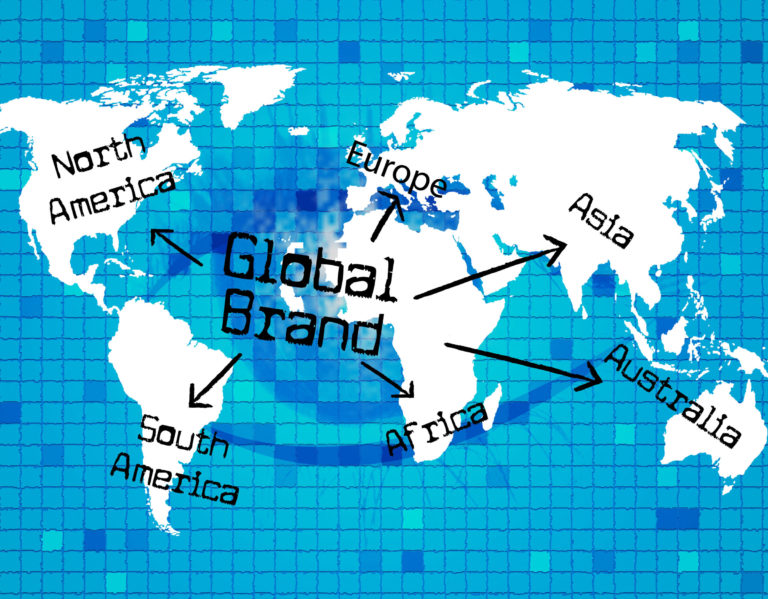SEO vs PPC: Which is Better for Small Businesses?

A well-crafted and tested digital marketing strategy is especially important for small businesses. Depending on your customer personas, traditional marketing can still have value, but digital marketing is a cost-effective way to stay top of mind with your existing customers and attract new leads. (Not convinced digital marketing is for you? Check out our article: 2024 Marketing Statistics You Need to Know)
Of course, small businesses can face unique obstacles with digital marketing. You may have a limited budget for advertising, lack the knowledge base you need to make good decisions, or have staff who are already spread thin. Thirty-two percent of small business owners say low resources is one of their top challenges. When time and resources are scarce, making the right decisions in your digital marketing strategy can have an even greater impact on your success.
One of the more difficult choices within your digital marketing strategy can be whether to focus on search engine optimization (SEO), pay-per-click advertising (PPC), or a combination of the two. Both methods of advertising can help grow your business, but they go about this growth in very different ways. SEO uses organic search traffic to direct users to your website, while PPC works by showing potential customers targeted advertisements.
So, how do you know which will be better at reaching the target audience for your small business? How do you know which to prioritize? Or should you take a balanced approach and use them equally? The decision is yours! But having a greater understanding of how each method works can help you shape a more effective digital marketing strategy.
Understanding SEO
If you use the Internet, you most certainly also use a search engine to find what you’re looking for. When you type a query into a search bar, the search engine you’re using (most likely Google) makes a decision about what to show you first. The algorithm searches through thousands of articles, webpages, news clippings, and more to present the most relevant answer options. You need to position your website pages to attract the attention of that algorithm so that when someone is looking for the product or service you sell, your business is at the top of the search engine results page (SERP).
This is why SEO is often referred to as “organic” advertising. Your goal is to be the first result on the first page when potential customers search for the product or service you provide, but there’s no direct payment to Google that correlates to your position on the SERP. You move up on the SERP by optimizing your website pages, creating new content, and ensuring your website infrastructure is always up to date.
A strong SEO strategy helps your business rise higher in the search rankings, increasing your odds of being seen by your target audience.
Is SEO better for small businesses?
There’s no straightforward, easy answer to this question. SEO can be the right choice for your business, but there are pros and cons to concentrating more on search engine optimization.
Any type of advertising can be pricey, but SEO costs are typically predictable. When you start out on your SEO adventure, you may have some upfront costs. Investing in a digital marketing strategy, website updates, and the quality content that will push your site higher on the SERP will be necessary. Once you’ve climbed the rankings, your current content will need to be monitored, and new content created in order to maintain (or improve!) your position on the SERP. However, your workflow and costs are likely to be stable, making your marketing budget easier to plan.
SEO can give you more ways to connect with potential customers. For example, if your business sells products and services that appeal to multiple customer personas, you should have more content options within your digital marketing strategy to reflect that diversity. You can create evergreen content that targets different potential customers at different points in the customer journey. Since that content is always available and SEO-optimized, you have a powerful tool to reach customers, regardless of whether they’re researching your product, considering their options, getting ready to purchase, or even in the post-purchase phase.
By creating helpful content that ranks well in search algorithms, you can gain recognition as an expert in your field. This can improve your credibility and increase interest in your business. Creating content also allows consumers to get a peek behind the curtain of your business, and learn more about your values, skills, knowledge, and process before making a purchase.
On the downside, not every page ends up highly ranked. There’s already quite a bit of content on the Internet, with no end in sight. Most businesses are already putting themselves out there and fighting to be seen. SEO can be highly competitive, and getting to the first page on your own can be a huge time investment.
Another roadblock for you may be that search engine algorithms are difficult to understand on your own. The reality is that 90% of search traffic happens on Google which means knowing how your customers use the search engine is necessary for a successful SEO strategy. Without the help of a digital marketing agency, this kind of research could be a huge time sink for you. Also, Google is constantly updating their algorithm and they’re famously secretive about exactly what is needed to rank highly. This could mean that while you might get to the first page for a specific keyword, a new update could roll out and require an adjustment to your content.
Understanding PPC
Ultimately, the goals of SEO and PPC are the same: to put your business in the top spot on the SERP. Have you ever entered a search in Google, and the first several results say “Sponsored”? The businesses shown there are using pay-per-click advertising, essentially purchasing a spot in the first few search results. SEO can get you to the same place over time using your content and strategy, but PPC puts you there today—just with that little “Sponsored” tag next to the result.
As the name PPC suggests, you only pay when someone clicks on your advertisement, not each time it’s shown in a search result. This is a significant difference from traditional advertising (such as newspaper or television ads, which typically pay per spot), and allows you to get concrete data on how your ads are performing.
You’ll still need to know the keywords that align with the product you’re advertising and who your target audience is. But, when a consumer searches for your keyword, they’ll automatically be shown your ad. One factor to consider is that the sheer number of advertisements people see each day can be overwhelming. As a result, potential customers may skim over the sponsored ads.
Is PPC better for small businesses?
Again, there’s no definitive answer to this question. Using PPC guarantees you a spot at the top of the pile and works instantly. A PPC campaign can be a great way to jumpstart sales if you need new customers quickly. As soon as your PPC campaign starts, your ads will be shown to your target audience. PPC works faster than SEO, but it’s not magic. Choosing the right keywords and targeting the right advertisements toward the right audience requires testing and modifications, so your PPC campaigns will need ongoing attention.
With PPC, you can be specific about who you want to see your advertisements. This can be extremely helpful for small businesses, especially those with localized service areas. Rather than competing on a national stage of a search algorithm, you can focus on your specific location and audience. You can create distinct ads for each demographic you market to—or even vary your ads based on the time of day!
PPC can be expensive, though, which can be difficult for some small businesses. You’ll always pay a fee, every time someone clicks on your ad, as long as your campaign is active. And a PPC campaign ends as quickly as it starts. When you turn the campaign off, the leads stop coming in immediately.
Is SEO or PPC better for your small business?
SEO and PPC are the leading digital marketing strategies for a reason. Either will help your business, but which is best depends on your specific resources, goals, and audience. Here’s a shortcut to help you consider when you might use SEO, and when it might be better to choose PPC.
SEO is best for…
- Long-term goals
- Smaller budgets
- Businesses that benefit from being perceived as experts
PPC is best for…
- Fast results
- High visibility
- Targeting a specific audience
SEO, PPC, or a combination of both might be right for your small business. Selling a product that’s time-sensitive, innovative, or otherwise needs sales sooner rather than later? Pay-per-click is a better fit in that particular situation. If you’re looking to educate people more holistically about your business and establish a long-term presence, SEO is a stronger strategy. Do you have ideas that will attract new customers, but are unclear on how to create SEO-optimized content? Are you ready to set up a PPC advertising campaign, but you’re not sure how to target the ads? We can help. Talk with one of our marketing experts today!







